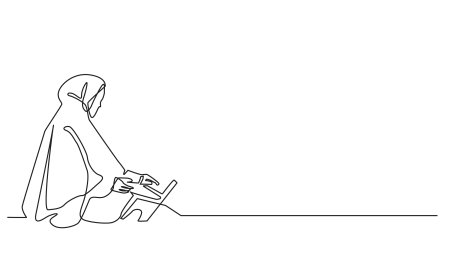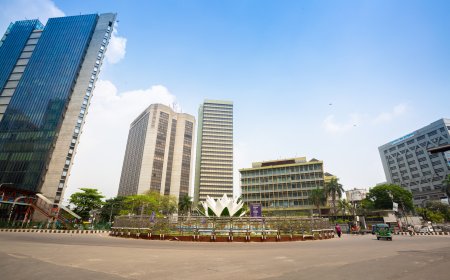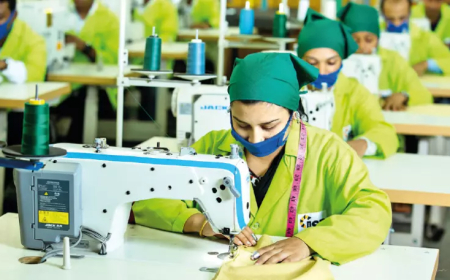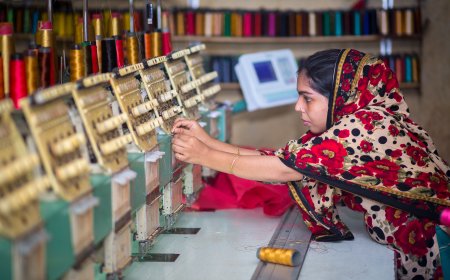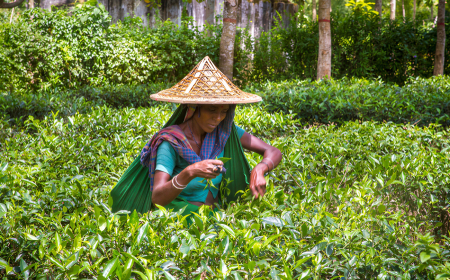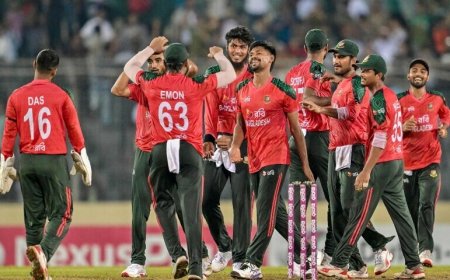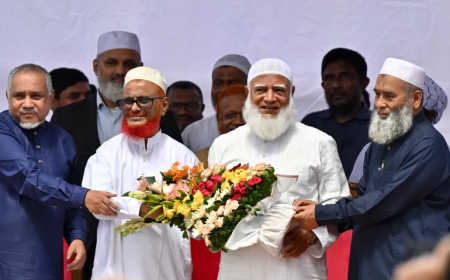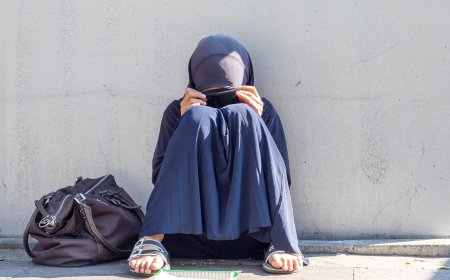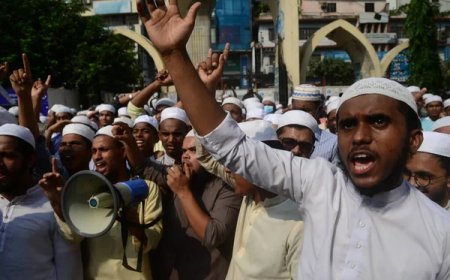A Question of Trust
Why is Bangladesh rushing a typhoid vaccine lacking sufficient -- in fact any -- efficacy data? This level of irresponsibility is unacceptable. We have the capacity to supply good-quality vaccines for the protection of our children, and this should be a national priority.
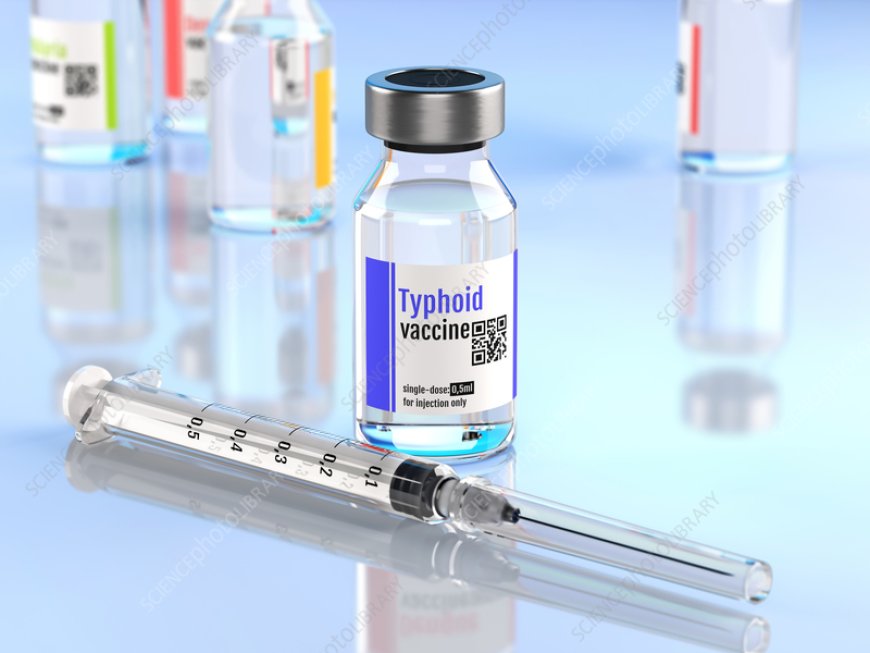
Vaccines are a triumph of modern science, and we believe in progress made through scientific discoveries. This commitment is precisely why we must raise a red flag over the massive, non-emergency rollout of a typhoid conjugate vaccine (TCV) to nearly 50 million Bangladeshi children.
Our concern is not with vaccination, but with scientific transparency and public safety.
An impartial and rigorous evaluation of the quality, efficacy, and long-term safety of the specific vaccine being administered is essential. Failure to provide clear, public data risks generating fear and undermining future vaccination efforts.
We previously volunteered our expertise during the COVID-19 crisis, providing scientific evaluations of vaccines like ‘Bangavax’ and ‘Sinovac’ to protect the nation.
We are applying that same principle now: scientific rigor must precede mass deployment.
The Wrong Typhoid Vaccine is Chosen
Bangladesh is not facing a typhoid epidemic. This is a normal-time context, yet the government has initiated a colossal campaign targeting children and adolescents with a vaccine called TYPHIBEV® (manufactured by Biological E Limited, India).
The problem is the alarming absence of public-interest scientific data to justify this choice. While TYPHIBEV® is WHO prequalified, that status alone is not sufficient justification for a nationwide rollout, especially when superior alternatives exist. For comparison, Bharat Biotechs'sTCV (Typbar TCV®) has established an clinical efficacy of 79-85%. Conversely, the WHO itself, as recently as January 2023, has noted that there is no published clinical data on the efficacy of the TYPHIBEV® of Biological E vaccine.
We must ask a fundamental question: Why was this specific vaccine chosen?
It is important to note that not all TCVs are the same. There are significant differences between Typbar TCV® and TYPHIBEV® in terms of their carrier protein, Vi polysaccharide source, linker chemistry, and excipients, among other critical parameters. Even minor variations in the manufacturing processes of these vaccines can lead to meaningful differences in vaccine quality. For these reasons, producing a copy or generic version of a conjugate vaccine is an extremely challenging task.
The Data Gaps Are Unacceptable
Our analysis of the available documents, including WHO and manufacturer data, reveals three critical scientific deficiencies that demand an immediate halt and review:
Zero Published Clinical Efficacy Data
There is no direct, published data on the short-term or long-term clinical efficacy of TYPHIBEV® -- the degree of actual protection it provides to a vaccinated child against an infection with typhoid bacteria.
In contrast, other established typhoid vaccines approved in the US and EU have follow-up periods ranging from 34 months (1,220 days for TYPHIM Vi) to 48 months (1,440 days for Vivotif).
Vaccination programs are built on this foundational data. The absence of it seriously calls into question the scientific rationale for spending public resources and using public trust on this wide-scale rollout.
Inadequate Follow-up Period
According to Biological E Limited’s Phase II/III trial data, the follow-up period for measuring the vaccine’s safety and immune response (immunogenicity) was a mere 42 days. This is scientifically inadequate for a bacterial vaccine. Forty-two days is not enough time to determine long-term safety or efficacy.
Why Not Choose a Proven Alternative?
This brings us back to the core issue: A massive public health program requires the best available science. Why was a vaccine lacking short-term efficacy, long-term efficacy, and long-term safety data approved for Bangladeshi children when established alternatives -- with full efficacy and safety profiles -- are on the market?
The government’s selection process must be opened to public scrutiny.
We are not anti-vaccine; we are pro-science.
To ensure the health of 50 million children and preserve public confidence in vaccination, the rollout must be paused. We urge the responsible authorities to initiate a prompt, transparent, and scientifically rigorous evaluation to justify the selection of TYPHIBEV® (Biological E Limited, India), or immediately switch to a TCV with a proven track record.
The health and trust of the nations children are non-negotiable.
Comparative Data of Typhoid Vaccines
| Parameter | Vivotif | TYPHIM Vi | TYPHIBEV ®(Biological E Limited, India) |
| Quality | Sufficient data publicly documented |
Sufficient data publicly documented |
Insufficient data |
| Conjugate/Lot-to-Lot Characterization Details Publicly Documented? |
Sufficient data available |
Sufficient data available |
Insufficient data |
| Non-Clinical Data (GLP) | Sufficient data available |
Sufficient data available |
Insufficient data |
| Clinical Efficacy | 42-95% (surveillance up to 48 months) |
50-74% (follow-up up to 3 years) |
No data |
| Was a reduction in typhoid infection confirmed by blood culture testing? |
Yes | Yes | No |
| Has the long-term follow-up of protection (Efficacy) been conducted? |
Yes (1,440 days) | Yes (1,220 days) | Not conducted |
| Is long-term safety data available? |
Sufficient data available |
Sufficient data available |
No (safety data only up to 42 days) |
| Have clinical trials been conducted in multiple countries? |
Yes | Yes | No (only in India) |
| Received FDA or European Union approval |
Yes | Yes | No |
Ethical and Economic Concerns
Bangladesh does not yet have a robust system for Pharmacovigilance or vaccine recall, as seen in developed countries. In this context, it is imperative to exercise maximum caution in the widespread use of any vaccine quickly approved based on short-term clinical trials.
The inclusion of such a vaccine in public use, especially in a mass vaccination program, without completing an adequate vetting process is concerning. There is public discussion that this typhoid vaccine (TYPHIBEV ®) may be included in the childrens Expanded Program on Immunization (EPI) in the near future. If this is true, it would set a precedent for extreme unethical behavior and irresponsibility regarding childrens health protection, especially if there are questions about the vaccine's safety and efficacy.
An argument is raised in some quarters that Bangladesh, as a developing country, lacks the financial capacity to purchase high-quality vaccines (such as those approved in Europe or America). Therefore, it is argued that the vaccine should be accepted even if it means compromising on issues of vaccine quality, efficacy, and safety.
Each dose of such a vaccine typically costs between $1 and $1.5 in developing countries. Accordingly, the estimated cost for procuring 50 million typhoid vaccine doses could be between $50 and $75 million.
This argument for compromising vaccine quality on the pretext of poverty or economic weakness is not acceptable. This is because Bangladeshs economic capacity proves that we can afford to supply good-quality vaccines. According to a recently published white paper, $234 billion USD was illegally laundered during the tenure of the previous fascist government (2009-2024), which is equivalent to several years of Bangladeshs national budget.
Bangladesh has the capacity to supply good-quality vaccines for the protection of children, and this should be a national priority.
Based on an analysis of publicly documented scientific information, our team concludes that the mass application of the Biological E Limited companys typhoid vaccine (TYPHIBEV ®) outside of clinical trials, without sufficient data on short-term and long-term clinical efficacy and long- term clinical safety, is unacceptable and contrary to public health ethics.
References
- WHO prepared summary of key characteristics of WHO prequalified typhoid conjugate
vaccines (TCVs). January, 2023.
- WHO assessment report (Biological E limited) vaccine. 18 Dec 2024.
- https://extranet.who.int/prequal/sites/default/files/vwa_vaccine/FVP-P-379_408_Typhibev_Biological%20E._WHOPAR_2025.pdf
Dr. Rezaul Karim is an immunologist based in the Netherlands, specializing in the development and evaluation of biologics and vaccines.
Dr. Jubayer Rahman is an immunologist based in the US.
Dr. Mohammad Sorowar Hossain is a former Senior Manager (RD), Biotech Division, Incepta Pharmaceutical Ltd; Executive Director, Biomedical Research Foundation, Bangladesh.
What's Your Reaction?







